Why is Japan rearming?
Country to acquire first aircraft carrier since the Second World War as fear of Chinese threat grows
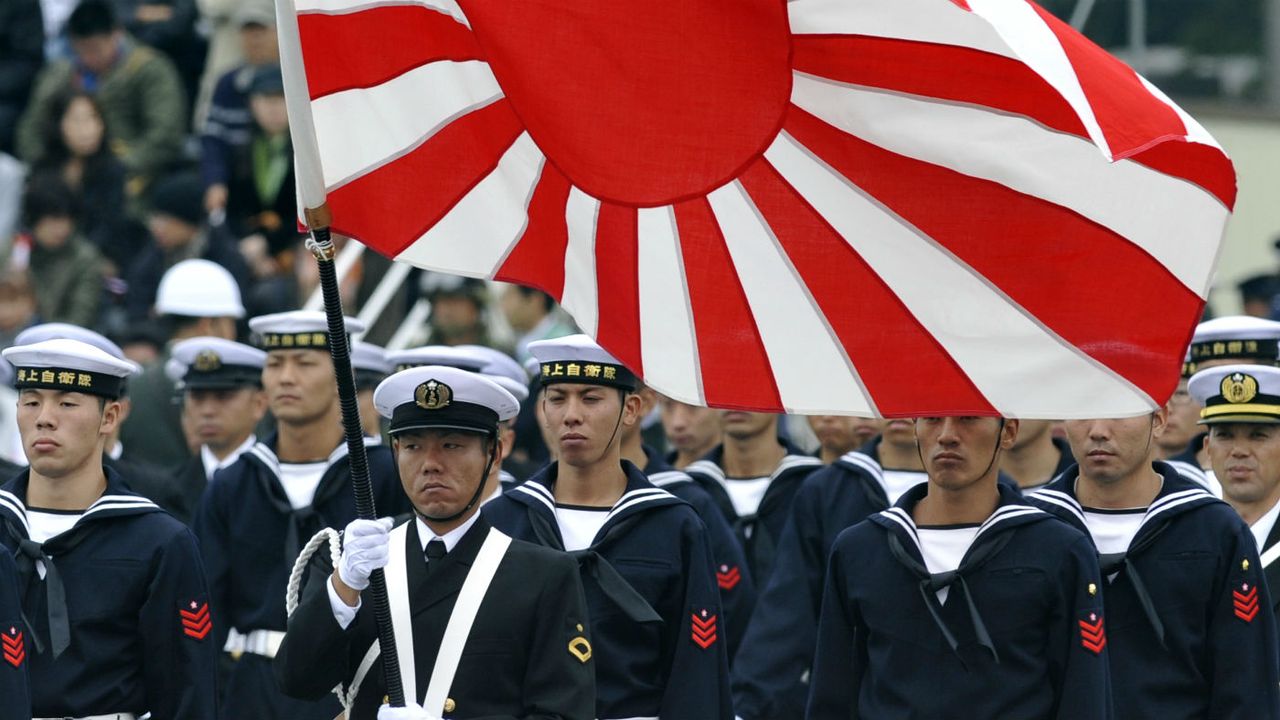
Japan is to acquire its first aircraft carrier since the Second World War, as it looks to ramp up its rearmament programme to counter the growing maritime threat posed by China in the Pacific Ocean.
Earlier this week the Nikkei business paper reported that Japan was poised to buy 100 F-35 stealth jets from the US at a cost of more than $8.8bn, to add to the 45 it has already purchased from the US.
Now Tokyo plans to upgrade two existing helicopter-carrier vessels so they can transport and launch fighter jets, “a move critics say violates its postwar constitutional commitment to a purely defensive role for the military”, reports The Guardian.
Subscribe to The Week
Escape your echo chamber. Get the facts behind the news, plus analysis from multiple perspectives.

Sign up for The Week's Free Newsletters
From our morning news briefing to a weekly Good News Newsletter, get the best of The Week delivered directly to your inbox.
From our morning news briefing to a weekly Good News Newsletter, get the best of The Week delivered directly to your inbox.
Previous Japanese governments have specifically ruled out acquiring aircraft carriers, adhering to the postwar consensus that the vessels’ capabilities could be interpreted as offensive and therefore in violation of its “pacifist” constitution.
“The notion that the best defense is a good offense is gaining traction among Japanese decision-makers,” writes Phillip Orchard in Geopolitical Futures, driven by China’s increasingly expansionist maritime policy in the region and the continuing threat posed by North Korea.
While last year’s North Korean missile test that penetrated Japanese airspace drew international condemnation, China is seen as the more serious threat. Tensions are currently focused on a tiny series of uninhabited islands in the South China Sea that are administered by Japan but claimed by China, and which some analysts warn could be the focal point for an all-out war in Asia.
Crucially, the mood among the Japanese public also appears to be shifting.
“Pacifism has been a sacred tenet of Japan’s national identity since the end of World War II” says Motoko Rich in the New York Times, “but there are signs that the public’s devotion to pacifism and its attitude toward the Japanese military, known as the Self-Defense Forces, have begun to change in part at the urging of Prime Minister Shinzo Abe.”
in 2015, Abe pushed through security laws that permit Japan’s troops to participate in overseas combat missions, and the Japanese government has also proposed military spending increases for seven years running.
“Japan has never been closer to revising its postwar constitution than it is now”, says John Wright in The Diplomat.
Though there is general consensus Japan’s pacifist constitution allows offensive action under certain limited circumstances, Bloomberg’s editorial board has written that “the prime minister needs to be honest about his long-running push to revise Japan’s constitution, including its clause renouncing war”.
“He says the changes he’s proposing would do no more than legitimise Japan’s existing Self-Defense Forces. But his past statements and links to hard-right groups have raised legitimate doubts about his intentions”, the news agency reports.
Sign up for Today's Best Articles in your inbox
A free daily email with the biggest news stories of the day – and the best features from TheWeek.com
-
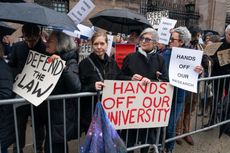 America's academic brain drain has begun
America's academic brain drain has begunIN THE SPOTLIGHT As the Trump administration targets universities and teachers, educators are eying greener academic pastures elsewhere — and other nations are starting to take notice
By Rafi Schwartz, The Week US Published
-
 Why is Musk targeting a Wisconsin Supreme Court race?
Why is Musk targeting a Wisconsin Supreme Court race?Today's Big Question His money could help conservatives, but it could also produce a Democratic backlash
By Joel Mathis, The Week US Published
-
 How to pay off student loans
How to pay off student loansThe explainer Don't just settle for the default repayment plan
By Becca Stanek, The Week US Published
-
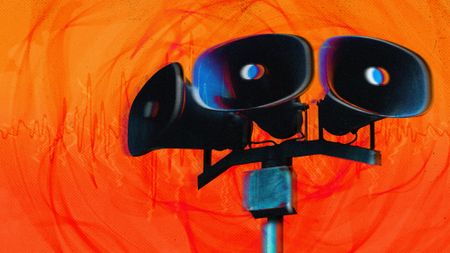 'Like a sound from hell': Serbia and sonic weapons
'Like a sound from hell': Serbia and sonic weaponsThe Explainer Half a million people sign petition alleging Serbian police used an illegal 'sound cannon' to disrupt anti-government protests
By Abby Wilson Published
-
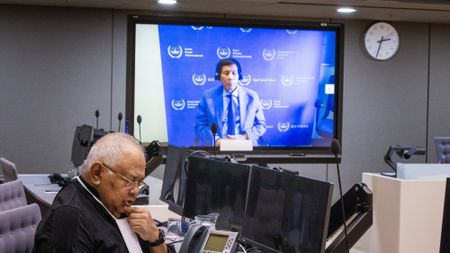 The arrest of the Philippines' former president leaves the country's drug war in disarray
The arrest of the Philippines' former president leaves the country's drug war in disarrayIn the Spotlight Rodrigo Duterte was arrested by the ICC earlier this month
By Justin Klawans, The Week US Published
-
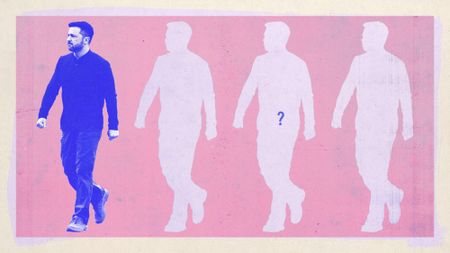 Ukrainian election: who could replace Zelenskyy?
Ukrainian election: who could replace Zelenskyy?The Explainer Donald Trump's 'dictator' jibe raises pressure on Ukraine to the polls while the country is under martial law
By Sorcha Bradley, The Week UK Published
-
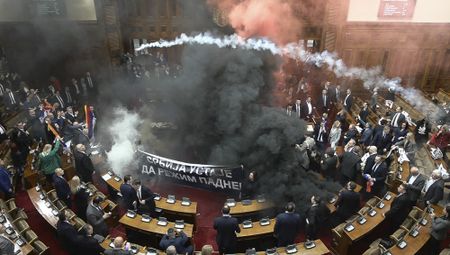 Why Serbian protesters set off smoke bombs in parliament
Why Serbian protesters set off smoke bombs in parliamentTHE EXPLAINER Ongoing anti-corruption protests erupted into full view this week as Serbian protesters threw the country's legislature into chaos
By Rafi Schwartz, The Week US Published
-
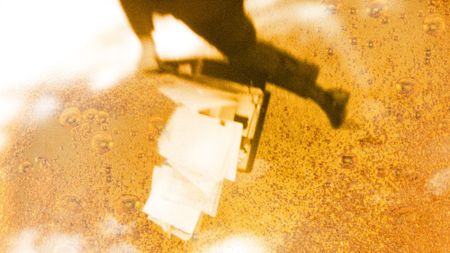 Data blunders put Japan's after-work boozing culture in the spotlight
Data blunders put Japan's after-work boozing culture in the spotlightUnder The Radar Excessive alcohol consumption and an analogue work culture combine to create a recipe for disaster when it comes to sensitive files
By Chas Newkey-Burden, The Week UK Published
-
 Who is the Hat Man? 'Shadow people' and sleep paralysis
Who is the Hat Man? 'Shadow people' and sleep paralysisIn Depth 'Sleep demons' have plagued our dreams throughout the centuries, but the explanation could be medical
By The Week Staff Published
-
 Why Assad fell so fast
Why Assad fell so fastThe Explainer The newly liberated Syria is in an incredibly precarious position, but it's too soon to succumb to defeatist gloom
By The Week UK Published
-
 Romania's election rerun
Romania's election rerunThe Explainer Shock result of presidential election has been annulled following allegations of Russian interference
By Sorcha Bradley, The Week UK Published